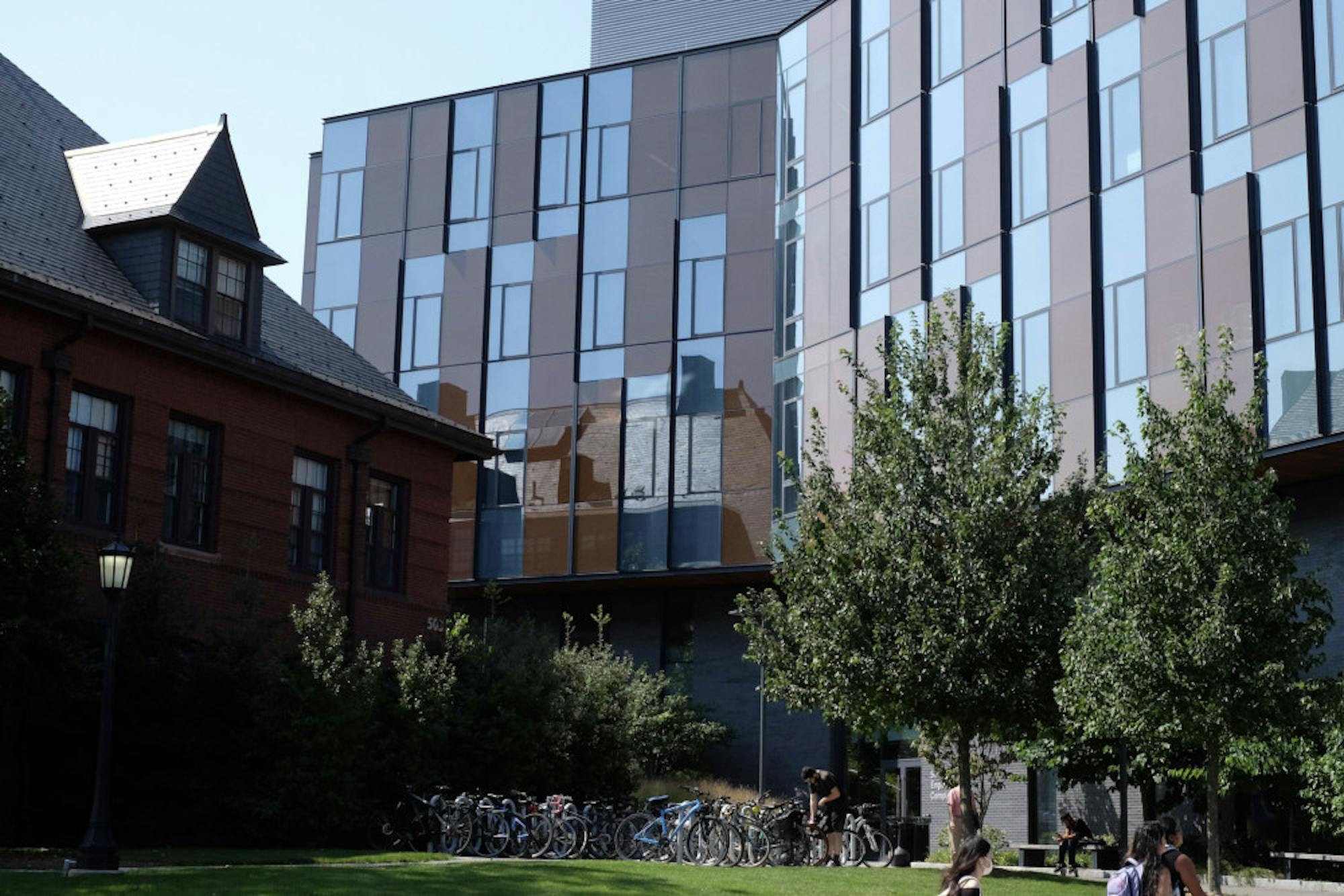Morphoceuticals, a biotech company co-founded by Tufts professors Michael Levin and David Kaplan, recently received $8 million in seed funding from Prime Movers Lab and Juvenescence. The company is taking a new approach to the challenge of regenerative medicine by exploring the bioelectric controls of the human body to induce the regeneration of tissue, limbs and organs. Levin hopes their work can revolutionize regenerative applications and help millions of people with various injuries and health conditions.
A few years ago, Levin and Kaplan successfully regenerated the hind leg of a frog using a wearable bioreactor called a biodome. This biodome contains a “payload” of drug compounds to motivate the cells to start regenerating the lost limb. Just 24 hours of exposure to the biodome enabled regenerative growth in the frog’s hind leg over the next 18 months.
“That’s really unheard of in biotechnology,” Michael Hufford, the interim CEO of Morphoceuticals, said. “You really don't hear about a very short-term intervention like that, incredibly brief, 24 hours, leading to such an incredibly long period of regeneration and culminating in something as remarkable as a fully functioning limb.”
While the technology succeeded on a frog limb, it must first be tested on mice before any clinical trials on humans can be done. According to Levin, $8 million in funding will help Morphoceuticals hire more staff, buy high-tech equipment, rent space and pay for experiments that will help obtain Food and Drug Administration approval and advance research goals.
“We need to have many conversations with the FDA to figure out what is a path … toward safety and efficacy testing,” Levin said. “So, part of the money will go toward hiring people who know how to put together FDA packages.”
Conducting thorough experiments to get FDA approval is a crucial milestone for Morphoceuticals, as it will allow them to begin clinical trials on humans and provide treatments sooner. Initially, these treatments will focus on computing a set of drugs that will improve amputee stump health. Enhancing the health of amputee stumps will lead to less inflammation, better vascular use and healthier skin in the affected area. The treatment will be as simple as applying a topical drug.
“Instead of applying electricity, we’re just modifying the ways that [our cells] are talking to each other, using drugs that modify these ion channels and gap junctions,” Hufford said. “It’s just a topical application that triggers that program [in our cells] to rerun and regrow the limb.”
Levin spoke about the implications of his work.
“There’s a huge need for people with birth defects, traumatic injury, cancer, aging, degenerative disease, all of these things,” Levin said. “I get phone calls and emails every week from people in the most unbelievable medical scenarios. People with kids who have birth defects, spinal cord injuries, lost limbs, cancer.”
Levin and Kaplan’s work aims to spark a revolution in biomedicine that will eventually lead to limb and organ regeneration. Levin compared Morphoceuticals’ work to the development of computers, which first focused on hardware in the ’40s and ’50s and has since transitioned to software development.
“All of the biomedicine today is very focused on the molecular hardware, so genome editing, CRISPR pathway rewiring, protein engineering, single molecule, single cell approaches,” Levin said. “We need to move beyond the focus of molecular hardware and really take advantage of the software of life.”
Levin and Kaplan’s research have been particularly exciting for the biology and biomedical engineering departments. Collaborations with other research labs on campus have allowed many undergraduate students to become involved in this research.
“The Kaplan Lab has a huge number of undergraduates in the lab and so it’s great that they provide so many opportunities,” Catherine Freudenreich, chair of the biology department, said, adding that the Levin Lab also supports many undergraduate research projects. “I think [both professors] are very well liked by the undergrads.”
Beyond research, Kaplan is the faculty mentor for a neurobiology club on campus, and Levin co-teaches a developmental biology lab course, Freudenreich said.
Levin emphasized the “critical unmet need” that Morphoceuticals addresses.
“We are in a place where we have preventable biomedical suffering in incredible amounts,” he said. “This [technology] is an [absolutely] vital path for humanity forward. That’s what I want people to focus on.”






